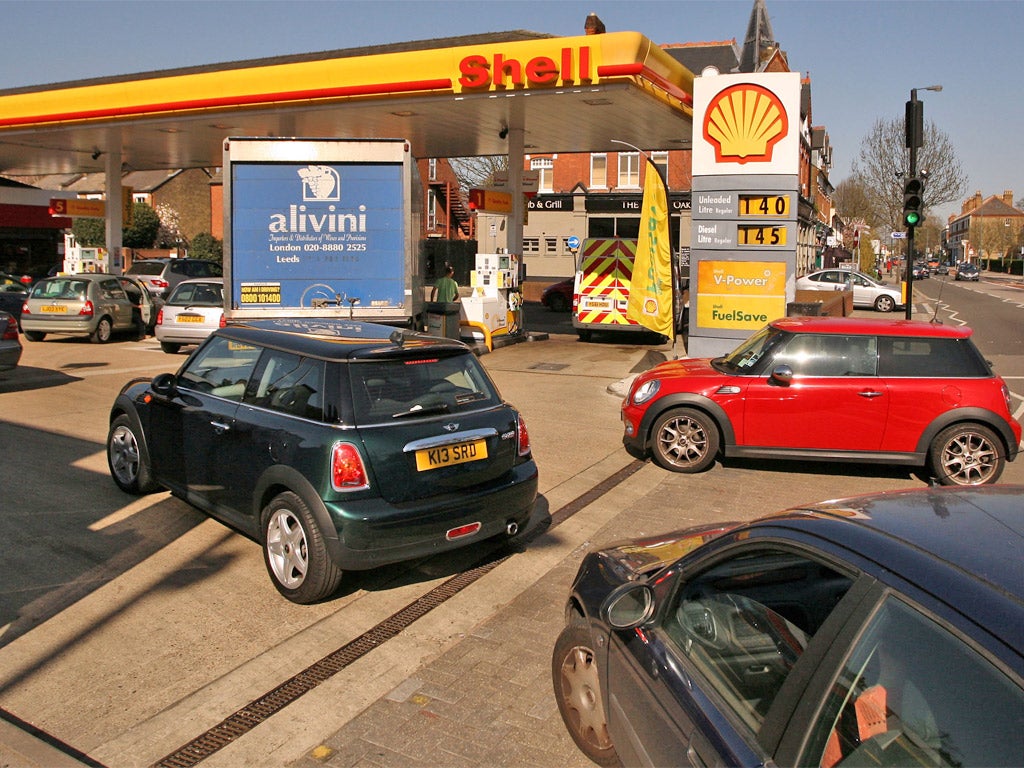Soaring cost of petrol prompts pricing review

Your support helps us to tell the story
From reproductive rights to climate change to Big Tech, The Independent is on the ground when the story is developing. Whether it's investigating the financials of Elon Musk's pro-Trump PAC or producing our latest documentary, 'The A Word', which shines a light on the American women fighting for reproductive rights, we know how important it is to parse out the facts from the messaging.
At such a critical moment in US history, we need reporters on the ground. Your donation allows us to keep sending journalists to speak to both sides of the story.
The Independent is trusted by Americans across the entire political spectrum. And unlike many other quality news outlets, we choose not to lock Americans out of our reporting and analysis with paywalls. We believe quality journalism should be available to everyone, paid for by those who can afford it.
Your support makes all the difference.Relentlessly rising petrol prices on forecourts across the country have finally forced the Office of Fair Trading to launch an investigation into Britain's fuel industry.
Average pump prices now stand at 138.99p a litre of petrol and 143.52 a litre of diesel. The increases are significantly higher than the rate of inflation and are not in line with underlying rises in oil prices and the wholesale cost of fuel.
The OFT yesterday launched a six-week investigation into competition worries. It will examine how oil companies set prices, and how filling stations, particularly those owned by the supermarkets, set their prices.
The investigation is launched against a background of accusations of predatory pricing by some supermarkets. The practice has led to a postcode lottery where motorists living in so-called "price jam" towns are forced to pay up to 5p more a litre for their petrol than neighbours a few miles away.
Claire Hart, an OFT director, said: "We are keenly aware of continuing widespread concern about the pump price of petrol and diesel and we have heard a number of different claims about how the market is operating. We want to identify whether or not there are competition problems in the sector."
The watchdog will investigate whether supermarkets' and oil companies' pricing practices are making it impossible for independent retailers to compete. It will also look into the perceived lack of competition between fuel sellers in remote areas.
Other areas the OFT will investigate include claims that falls in the price of crude oil are not being reflected in pump prices. "Every motorist knows it – when crude oil prices go up forecourt prices quickly follow suit. But when they come down again pump prices are slow to do the same," said Robert Downes, policy adviser at the Forum of Private Business.
Lack of competition in fuel pricing has become a global problem. A recent investigation by German authorities found a lack of retail price competition, and raised concerns about the market's structure and potential price co-ordination. It was a similar story in Spain, where the fuel industry has been investigated in three out of the past four years. In Australia, a formal investigation has been launched into price information sharing.
UK experts questioned why the OFT failed to act earlier. "An investigation of this market is overdue," said Edmund King, the AA president. "We've been calling for full transparency in fuel prices since 2005, allowing drivers to understand the relationship between oil, wholesale and pump prices."
David Bizley, RAC technical director, said: "Rising fuel prices cause economic hardship for millions, particularly in rural areas, so this really is news that motorists would like to have had a long time ago."
The OFT said it would gather information over the next six weeks and will publish its findings in January.
Join our commenting forum
Join thought-provoking conversations, follow other Independent readers and see their replies
Comments